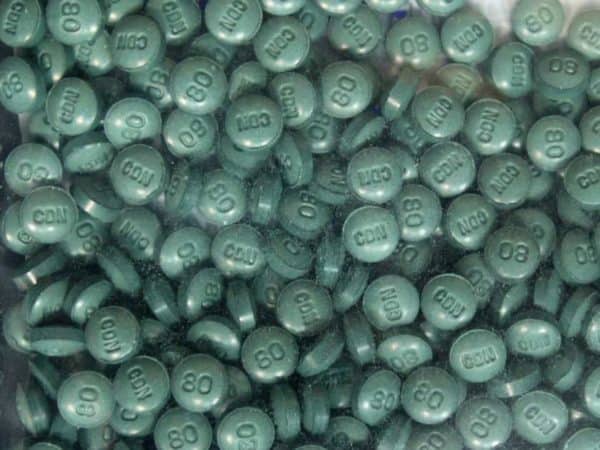This quick, cheap and easy fentanyl test is saving lives, study shows

 A little paper strip that tests for the presence of fentanyl makes an easy fentanyl test and is making a difference in overdose deaths in BC, according to a study conducted by Vancouver Coastal Health.
A little paper strip that tests for the presence of fentanyl makes an easy fentanyl test and is making a difference in overdose deaths in BC, according to a study conducted by Vancouver Coastal Health.
Adapted from urine drug tests, the test strips made by Canadian biotech company BTNX have been on offer to drug users over the past nine months at InSite, Vancouver’s Downtown Eastside supervised safe injection site.
Requiring only a tiny amount of a drug and a couple of drops of water, the tests give a verdict a minute later, indicating whether or not the drug in question contains fentanyl, a powerful synthetic opioid which has been blamed for hundreds of deaths in Canada over recent years. Street drugs like heroin can often come laced with fentanyl, unbeknownst to the user, hence the value in a cheap (the tests cost a dollar each), quick and easy way to test for the drug.
The study found that a full 80 per cent of samples tested at InSite contained fentanyl, an amount which likely does not accurately reflect the proportion of fentanyl-laced drugs on the street, as tests were more often performed on drugs that users felt unsure about.
Nevertheless, testing helps prevent overdoses among drug users, says Mark Lysyshyn, medical health officer with Vancouver Coastal Health. The study found that 38 per cent of users opted to test their drugs prior to using them. ”They are about 10 times more likely to reduce their dose if they get a positive drug check, and then that makes them about 25 per cent less likely to overdose,” Lysyshyn said to CBC News.
Last year, Lysyshyn told the Georgia Straight that one challenge is trying to make the drug tests more available to drug users in the middle and upper socioeconomic strata, namely, those who might not be comfortable going to InSite to test their drugs.
“An intervention like this is potentially more interesting with recreational drug users because they actually might be more willing to dispose of their drugs,” Lysyshyn said. “We would eventually like to do this in the community.”
The test strips have made it into the United States, where some overdose prevention workers are distributing them to users and teaching them how they work. As reported by NPR in Massachusetts, workers at the Tapestry Syringe Access Program in Holyoke, Massachusetts, are seeing good results.
“People who would have done five bags [of dope] are cutting back to one-and-a-half or two. People who would pop four pills are only doing one,” says Jess Tilley, overdose prevention worker, to NPR. “We’re getting amazing feedback from users, like, ‘This has saved me.’ ”
The test does have its drawbacks, as it doesn’t provide a reading on the quantity of fentanyl in a given drug, only whether or not fentanyl is present. Also, the tests are designed to recognize six different forms of fentanyl, all of which are legally prescribed by physicians. Yet, other varieties of the drug are on the street, concocted in illicit drug labs, thus test users cannot be fully certain that a negative test means no fentanyl.
“We were concerned that if we offered the test in the community and somebody got a negative drug check, they might think their drug is safe, but actually, we don’t know what the results mean,” Lysyshyn says.
In Alberta, where overdose deaths attributed to fentanyl have also become more common in the past two years, officials are now contemplating the use of the fentanyl test in support of its drug strategy. “Any opportunity we have to save lives is worth looking into further, so I’ve asked the chief medical officer of health to investigate this further,” said Health Minister Sarah Hoffman, to the Edmonton Journal.

